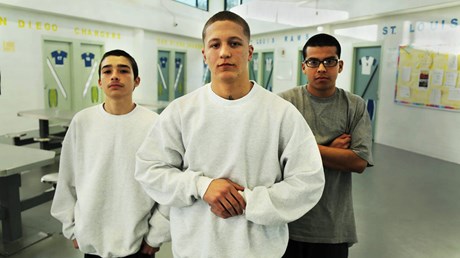Ben Lear’s directorial debut humanizes the debate about adult prison sentences for juvenile offenders.

When children commit the most heinous of crimes, it challenges our sense of justice and probes the limits of our worldview. Ben Lear’s bold documentary They Call Us Monsters, now streaming on Netflix, suggests that how we respond to these young offenders may also be the ultimate test of our humanity—and a proving ground for the power of grace.
Like many films that deal with such fraught issues as incarceration, They Call Us Monsters begins with a history lesson. During the late 1970s and throughout the 1980s, a perceived rise in youth violence and juvenile delinquency led many observers to blame a lax justice system for “losing control of” young offenders. By the early 1990s, ostensibly “tough on crime” policies gained broad political traction, and many states adopted laws that automatically transfer certain juvenile cases to the adult court system. There, children could face much harsher penalties than those allowed in juvenile court.
The film's provocative opening newsreel includes a 1994 press interview in which then-Representative Newt Gingrich curtly expresses the prevailing attitude behind such laws: “There are no violent offenses that are juvenile,” he says. “You rape somebody, you're an adult. You shoot somebody, you're an adult.”
Such inflexible rhetoric resonated loudly in the late 1990s, and the movement to punish rather than rehabilitate juvenile offenders intensified during the early 2000s and persists even today in many states. But now the tides are beginning to turn. There’s a growing consensus that mass incarceration is a failed experiment, and new findings in developmental psychology have prompted some former “tough on crime” …
Source: Christianity Today Most Read